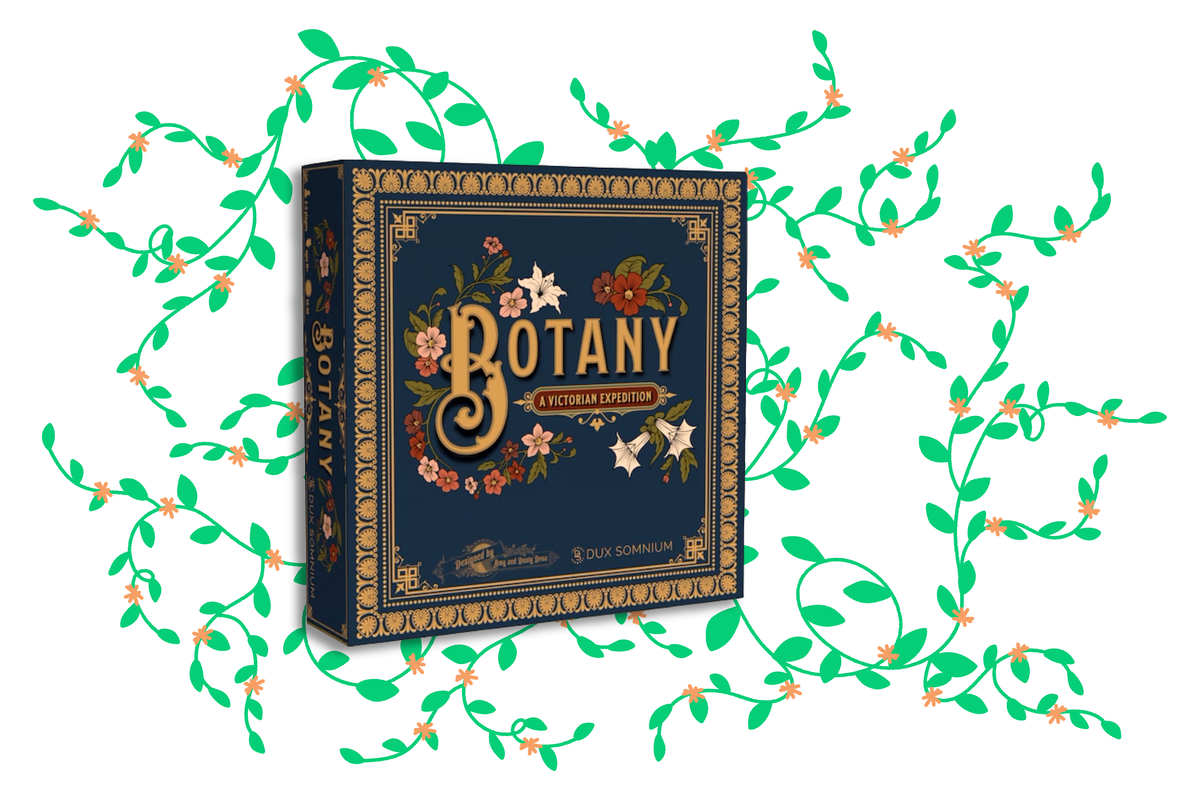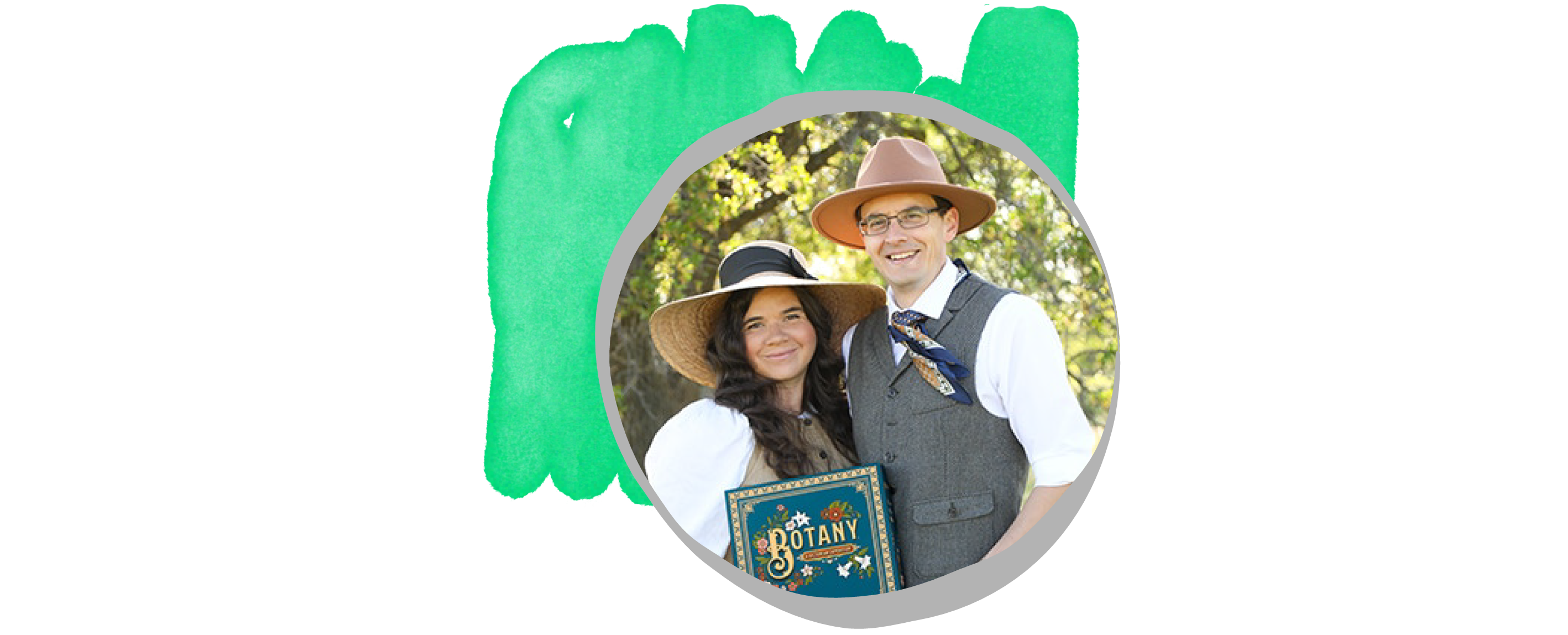From First-Time Games Creators to More Than $1M Raised—A Digital Marketing Success Story
First-time creators managed to secure more than half of their 15,000+ pledges by skillfully employing performance marketing.

In this case study, we'll dive into the success story of Botany: Flower Hunting in the Victorian Era, a Games project by Dux Somnium Games. These first-time creators managed to secure more than half of their 15,000+ pledges by skillfully employing performance marketing. Their partnership with Jellop, the leading provider of digital marketing services for crowdfunding campaigns, played a pivotal role in this success.

Cultivating Creativity
Amy and Dusty Droz, the founders of Dux Somnium Games, met in high school and grew up playing games together. They started with smaller, simpler games and then grew into “true nerd stuff” in the 90s. But they were always hungry for more approachable games to play with their friends.
During the pandemic, the couple explored avenues for turning their interest in games into a business. Their initial concept revolved around establishing a 3D-printed miniatures company. However, this idea rapidly evolved into grander aspirations of creating a full-fledged game.
Inspiration can come from many places, and the seed for Botany found its roots in Amy’s newfound interest in gardening—a passion that grew rapidly during the pandemic with the couple planting nearly 700 lavender shrubs. After starting a small business selling flower presses, the couple continued researching and discovered the wild world of the Victorian flower trade and the many colorful (and extreme) personalities within it.
Their explorations yielded tales of the surreal, including instances of shoe-eating, bullfighting, and the most daring forms of falconry. Dusty recalls their astonishment, saying, “We're like, how is this stuff even possible? Just the list of attributes that any one of these figures had was like straight out of a movie.”
After a long car ride to a wedding, the couple had crystallized the concept for their project—a Victorian flower collecting game—and they were ready to take the first real steps toward building their campaign.

Embracing the Digital Marketing Landscape
Though the couple had experience with other businesses, developing a game was an entirely new pursuit, so they began to do research. Dusty recounts that he started with the basics by typing “How to run a Kickstarter” into Google.
The duo ultimately partnered with a crowdfunding agency that guided them in refining their messaging and positioning, and by providing an array of pre-registration tools. These tools included a service designed to help creators identify the most effective backer messaging for their projects, along with pre-launch landing pages, payment processing, and email collection. After some successes with running digital advertising themselves to grow their pre-launch audience to several thousand interested potential backers, they decided to partner with Jellop after recommendations from both their agency and Kickstarter.
“You can do it yourself and I'm sure it’d be fine but, you know, you're never gonna catch up to Jellop's expertise,” said Dusty.
All the audience creation they have, and all the analytics and learning software they have that then refines those audiences—it's just a whole new level.
Goals and Objectives
Amy and Dusty started with very realistic goals. When asked by their agency partner what their campaign target was, they shared: “I don’t know—If we raised $10,000 and I made a few copies of the game and could use that to sort of kickstart buying more copies of the game, I'd be thrilled. Absolutely thrilled.”
To their delight, their agency partner replied, “We can do a lot better than that.”
The couple worked with Jellop in understanding how to set their ROAS (return on ad spend) target, a key profitability metric, which was a revelation. From there, the team established its daily marketing budgets and prepared to launch.

Strategy and Execution
As anyone who has embarked on a Kickstarter project knows well, the lead-up to launch can be a nerve-wracking time. “It was like the night before Christmas. We couldn’t sleep,” shared Dusty.
Adding to the excitement, the couple’s friend Jenny had asked to be told as soon as they launched so she could be their project’s first backer. Amy and Dusty speculated, “We're gonna click launch, Jenny will back us and then we'll sit around and maybe a few people will come in before our big email blast an hour later. But we launched, and as I was copying and pasting the link to her, the backer numbers started shooting up. I'm typing ‘Jen, you gotta hurry. You're not even gonna make the first 100.’”
Jellop’s digital marketing tactics were able to amplify this initial success to over $1M in pledges, bringing in more than 50% of all pledge revenue. It quickly became clear that Botany had appealed to people who had not previously pledged on Kickstarter, with nearly 20% of the campaign’s 15,000+ backers using the platform for the first time.
Jellop leveraged its expertise across Meta Ads with Facebook and Instagram placements, as well as Google Ads on YouTube, Discovery, Search, and Display placements. The campaign’s broad appeal allowed their targeting to expand while maintaining a profitable ROAS.

Lessons Learned
When asked about what Dux Somnium Games learned through the experience of running Botany, especially around the impact of digital marketing, Dusty reflected: "What I didn't understand with Jellop was that they generate a tremendous amount of momentum and indirect sales beyond just the attributed backings. The two days we paused Jellop ads to evaluate our strategy were also by far our two lowest days for organic pledges as well. Once we restarted our ads, our momentum and organic sales returned in force as well."
“It's scary to spend that much money on ads,” he added, “But we didn’t gamble. We started at $400 a day and then took very calculated risks where we could back up the spend with data.”
Amy and Dusty are already planning their next campaign, while also keeping on top of production for Botany. The campaign’s success far exceeded their expectations, and they’re now working hard to build on that success for years (and more games) to come.
Ready to maximize the success of your Kickstarter campaign?
Get Started
For more information about how to enhance your Kickstarter’s success with digital marketing, and what campaigns are likely to benefit the most from it, you can learn more here.
